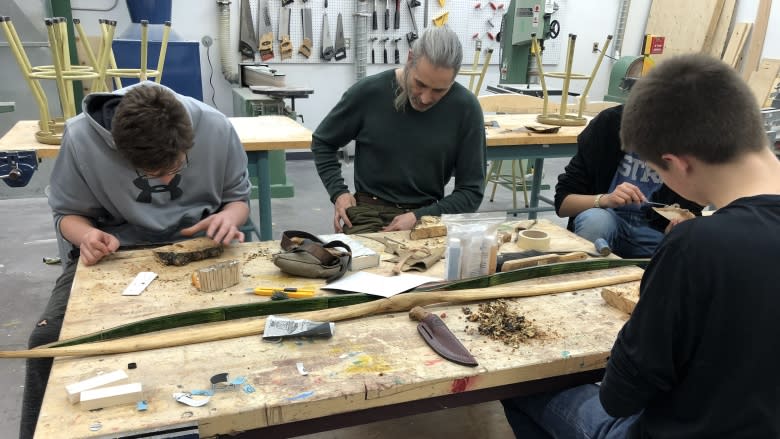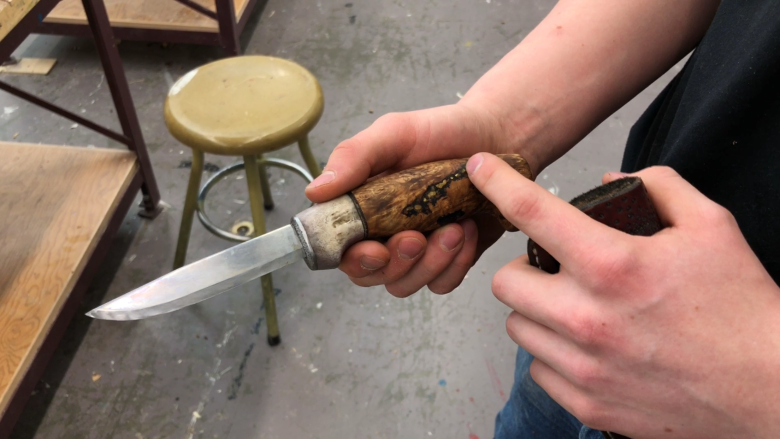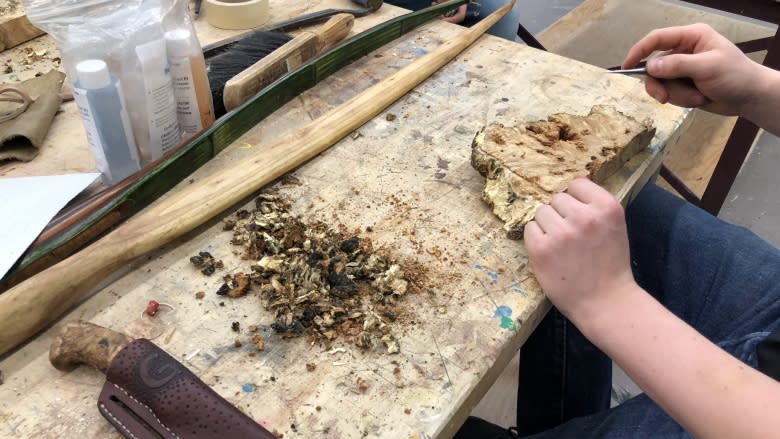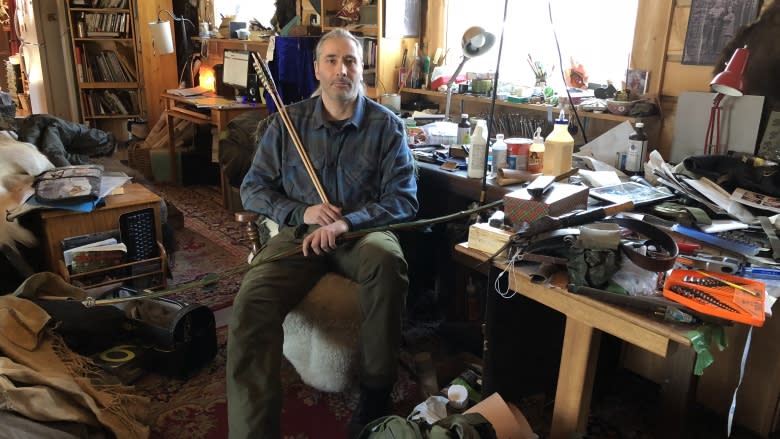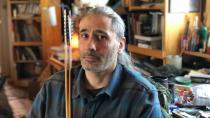In Mayo, ancient skills shared with fresh young minds
Students in Mayo, Yukon, have a new opportunity to learn bushcraft skills this year, after J.V. Clark School partnered with a local expert to offer workshops to interested high schoolers.
On Mondays, Wednesdays and Fridays, a handful of teenage boys spend three hours after class learning how to live off the land, and craft bows and knives from local resources.
Grade 11 student Gavin Winter-Sinnott has been going to the workshop since it started last fall. He's already made his own hunting knife, carving the handle from local aspen burl, filling in the holes with epoxy and small gold nuggets, then mounting a blade in a piece of moose antler he hunted himself.
"It's hard to get the hang of, but once you know what you're doing, it's surprisingly easy," said Grade 10 student Josh Samson.
He says he joined the workshop because it gives him a sense of accomplishment.
"I guess it was just the fact of me wanting to have my own tools and resources to survive out in the bush and to say that I made them. I created them and they're all made from resources that come from where I live."
'They're not for you to hoard'
Jose Martinez Amoedo is the man making it all possible. Much of what he knows has been cobbled together from a lifetime of research, from bushcraft masters, First Nations elders, and through studying his own ancestors in Spain.
"When you get teachings passed on from elders, they're not for you to hoard," he said. "What good would it be for me to sit in my house, all satisfied with the skills I have acquired? The idea is that they've helped me, they make my life better.
"If I can give some other young person a chance to achieve that, and if it's going to be useful for their lives, then it means I would have been useful."
An off-and-on resident of Mayo for more than a decade now, Martinez Amoedo has taught primitive skills workshops across Canada and the U.S. He's also demonstrated those skills as a competitor on season two of the History Channel's survivalist show Alone, where he came in third after lasting 59 days in the wild.
"Bushcraft is training for there to be the least amount of random possible, and when random happens — which it does in the bush — then knowing what to do and reacting to it in a way that is sustainable," said Martinez Amoedo.
At J.V. Clark school, he teaches kids the skills they are interested in learning, as well as how to use the tools responsibly.
"Most teenagers are so caught up in stuff like video games that it's hard for them to take three hours with me after school, out of their own time, to come spend time in a class," he said.
"All I can say is, I'm grateful they're interested enough to want to do that."
Martinez Amoedo believes it's good for the kids.
"I don't really care if they make one bow or fifty bows. What I do care is that they have a sense of accomplishment and pride in themselves."
Walking a fine line
He walks a fine line teaching bushcraft skills to the mix of Indigenous and non-Indigenous kids in Mayo. He says he navigates that by explaining what it is he is teaching.
"As far as making fire, making tools out of stone, tanning hides — my ancestors did all of that," said Martinez Amoedo.
"We have cave paintings in Spain showing my ancestors bow hunting 18,000 years ago. So do you think I'm entitled to teach bows and arrows? I think I am."
For First Nations skills and traditions specific to the region, he says he encourages kids to go to their elders.
In the spring, he plans on taking his students on a trip to practice living off the land, so they'll be able to put their newly-learned bushcraft skills to the test.

